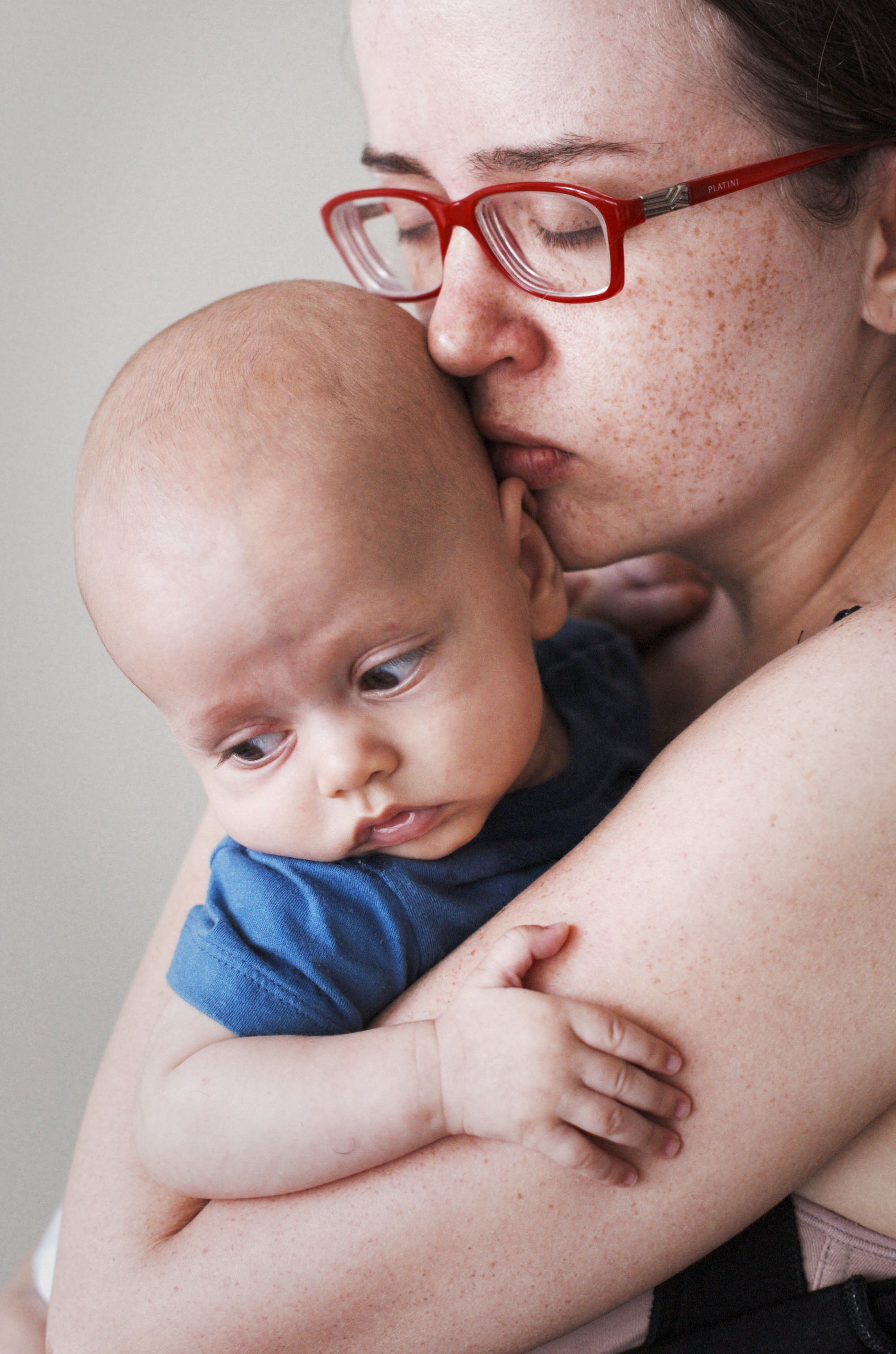
Should I prepare my baby for when I go back to work?
When the time to get back to work comes, fears and worries appear: Do I need to make a milk stash? How do I do it? How will they manage breastmilk when I am not there? Should I prepare my baby to take a bottle?
Well, today, we would like to talk about these important concerns. Do we have to prepare babies so that they are ready when mothers return to (paid) work? Well, the answer is no. But we are sure you are wondering why, so today, we will explore why it is not necessary to “train” babies before you go back to work.
The most frequent worries usually have to do with the idea of leaving everything under control, leaving instructions to the person who will take care of the baby, and you wish that your baby suffers as little as possible.
Planning and organizing seem like a good idea, but there is a fundamental misconception. If you start to “prepare” your baby weeks before you return to work by denying some breastfeeds and offering pumped breastmilk in a bottle or any other method instead, you are anticipating the suffering of both of you. Additionaly, you will be using up pumped breastmilk that you will probably need more when you return to work.

Are you sure? Isn’t it better to prepare babies?
Let’s try to make a comparison: imagine you are enjoying a summer vacation in a wonderful place, with all expenses included, relaxed, having a great time, and you have three weeks left to return to work. And, of course, as the return to routine and work is not easy, you will prepare for it.
Every day, to get ready, you get up early, and at 5 a.m., you take the car to the city, two hours to go and two hours on the way back. You get to your job, and you do a little work, a few hours, to prepare your mind for what’s to come. When you finish, you take the car back and return to your wonderful summer paradise. Once again, the next morning and so for three weeks so that when the day comes to return to work, you are well prepared. Would you be excited by this idea? Surely not. So why prepare babies? Why should you (and your baby) need to get through a hard time before it’s necessary?
Ok, but this is not the same. If I don’t prepare my baby, she won’t know how to feed!
This is a very normal and common worry. Separation is going to be a difficult time for everyone: first for your baby, then for you as a mother, and finally for the caregiver. Facing this new situation requires time and patience. But bringing forward the moment when you are still together doesn’t seem too logical after all.
If you are still at home with your baby, enjoy this time. Let your baby breastfeed as often as they want; the difficult moment of separation will come anyway.
And be sure, when the time comes, your baby will know how to eat when you are away. You will all find the way, no doubt.
But if my baby takes milk from a bottle already, that would be better, right?
We usually talk about baby bottles because this is the most common feeding method chosen by families. But there are actually quite a few other methods of supplementating that babies are more likely to accept.
If your baby takes the bottle before you go, you will probably feel better, but taking it once doesn’t mean your baby will do so the next times.
It may happen that the first time, your baby took the bottle out of curiosity. It is pretty common that they take the first bottle, but in some cases, babies are less willing to accept it once they get a hint of what we intend to do.
Most exclusively breastfed babies have serious problems accepting a bottle nipple: it makes them gag, they don’t know how to get the milk out, or they just cry desperately.
And the fact that they take the bottle the first time doesn’t guarantee that they want it the next time, and if they don’t want it the first time, you will suffer days and days before returning to work. Denying them feeds at the breast and struggling that your baby finally accepts a bottle will only make you both suffer.
So again, why bringing forward these difficult moments?
But my baby’s caregiver is very nervous.
It’s normal because this is a challenging situation. But remember that the main person affected is your baby. Explanations and attempts to plan the separation are of little use to a baby.
If the baby’s caregiver wants to do something to prepare the baby, what they can do is to prepare themselves:
- Observing the baby while they are with her mother, trying to recognize the hunger signs, and understand when they are tired
- Getting informed on the different methods of supplementing, learn about the paced bottle feeding and prepare the different options of giving milk to a baby.
- Read, read, and read.
Like everything in life, every family and every baby is different, and we really don’t know how they will react to such a big change. It will take a lot of patience, hugging them and be there when they cry, nursery rhymes, songs, taking walks, and whatever works best for you/them. A good idea is to keep a piece of clothing used by the mother and leave it with the baby while the mother is away to help them to get through those hours without her.
Do you have any other questions?
You can find more information about breastfeeding in our free app, LactApp, for iPhone or Android. In the contact section of the app, you can find an in-app consultation channel where our experts will answer your questions.